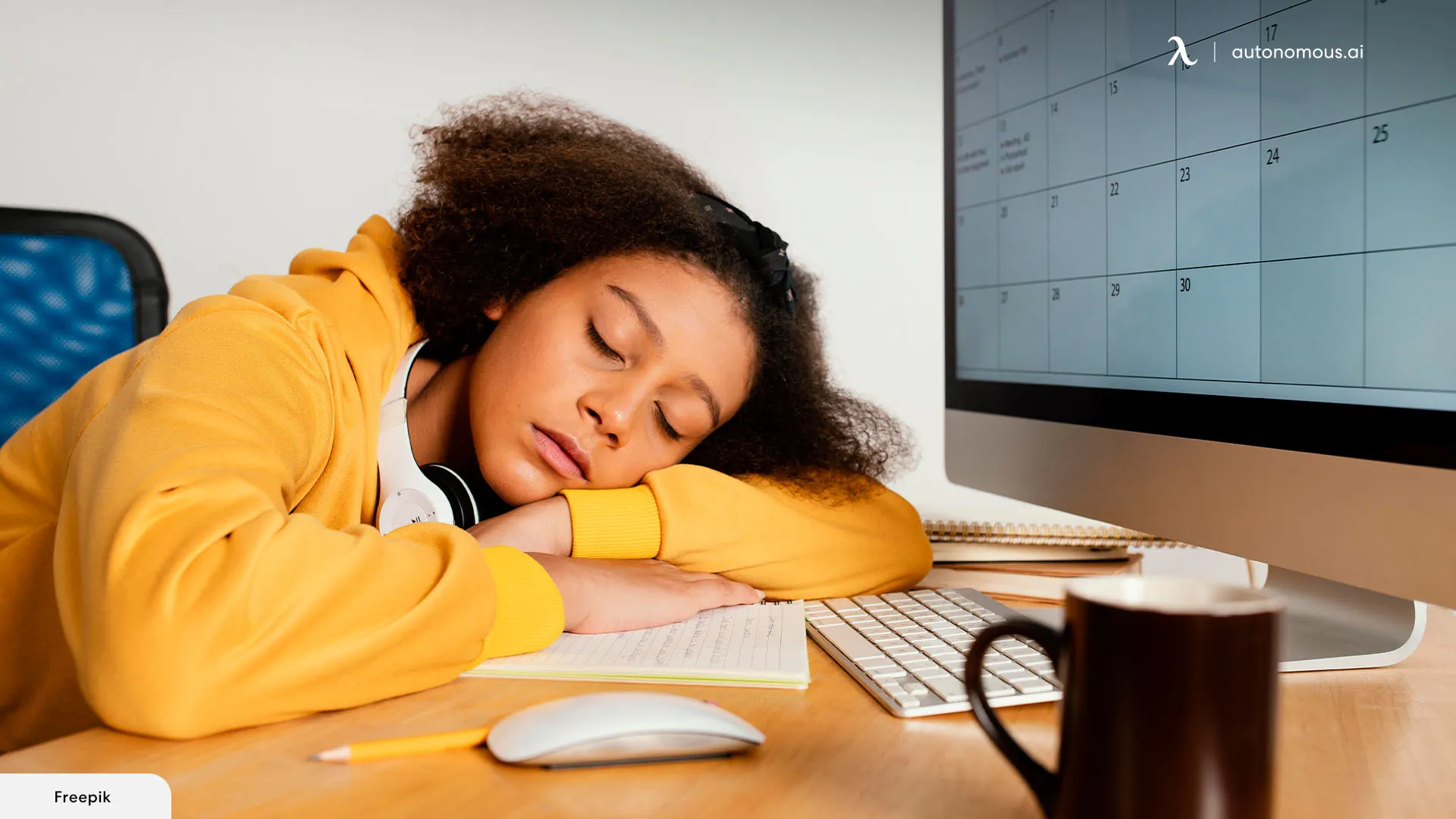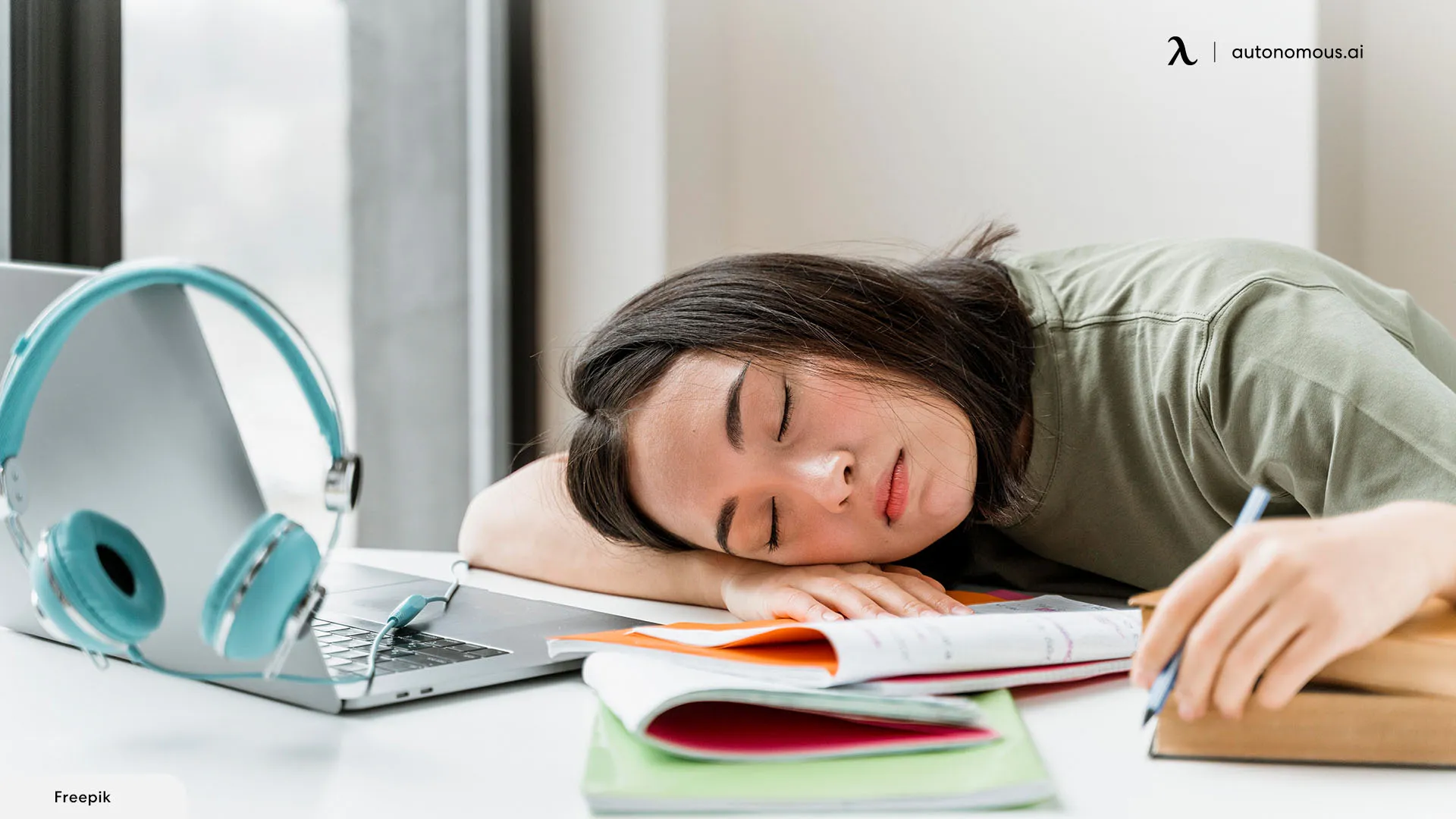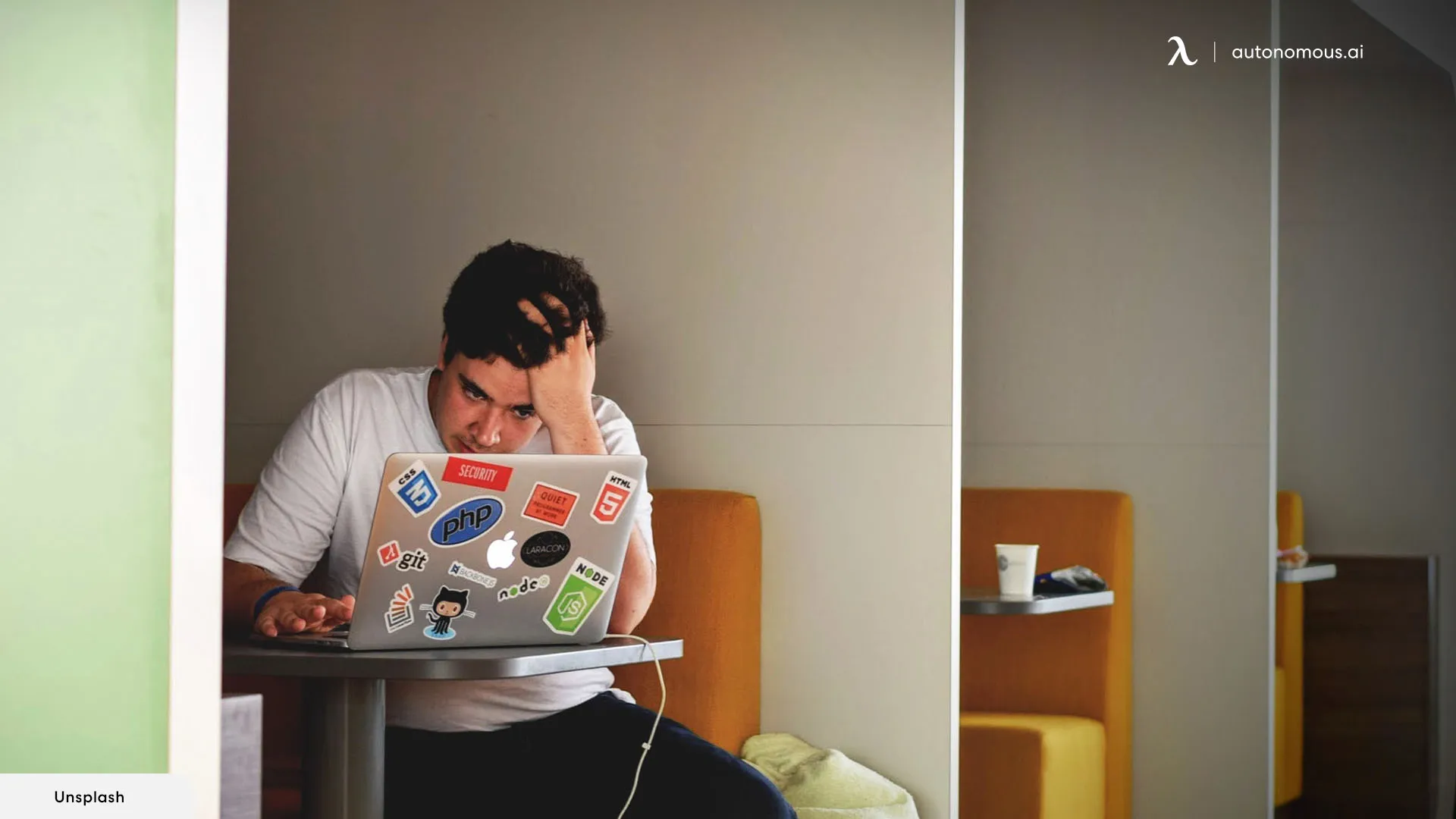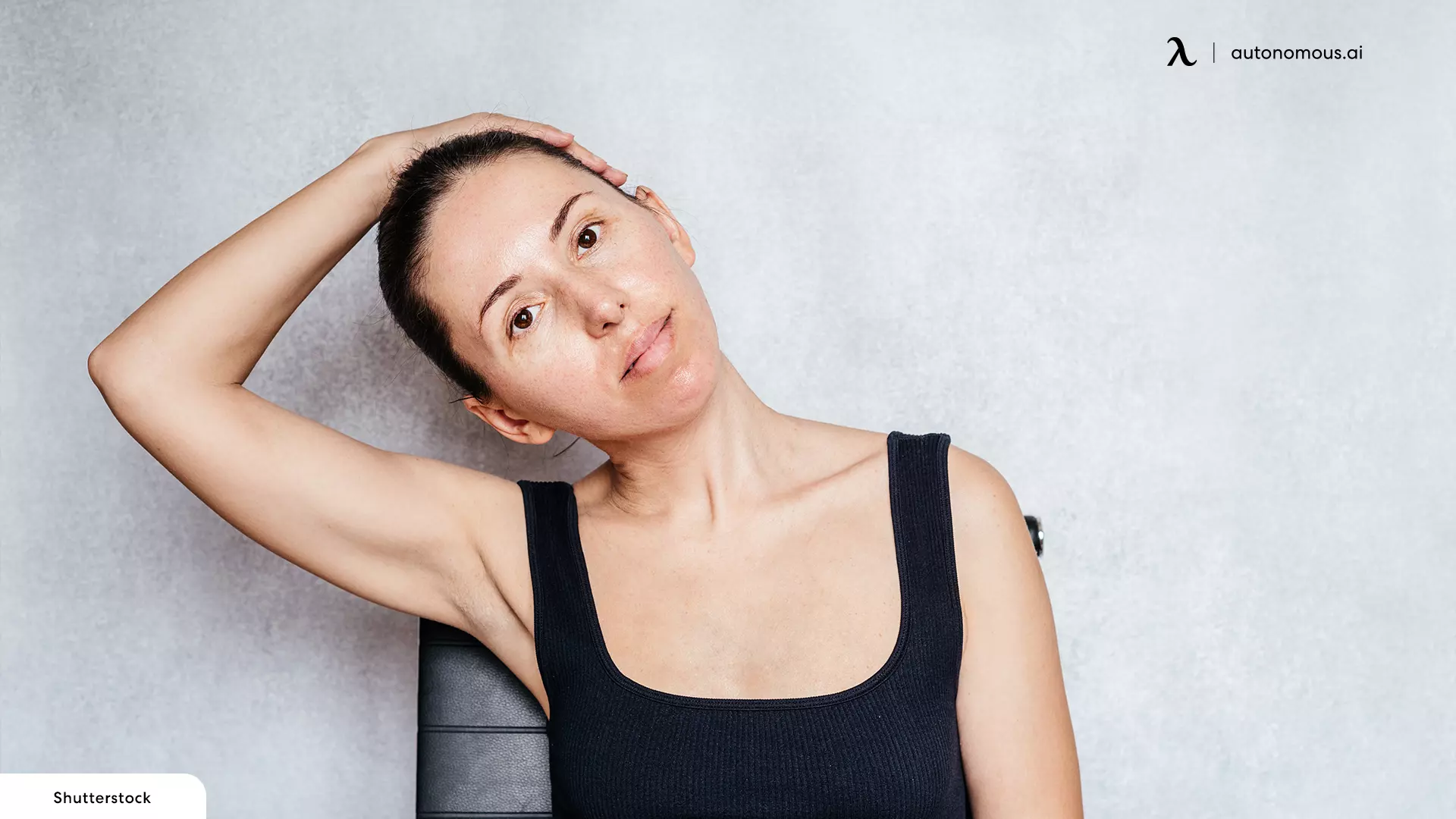
Get Rid of Bad Habits for Students From High School
Table of Contents
Bad habits can hinder success, affecting academics and work life. Among students, these habits include procrastination, falling asleep at work, brain fog, and workplace habits. To improve, distinguish emotional from mental habits, such as procrastination driven by fear. Challenge negative thoughts with cognitive behavioral therapy (CBT) and boost awareness with mindfulness.
The list of bad habits for students is long and vivid and seems to be a tough nut to crack but everything seems harder until one gets into it to fix it. Our article tackles common student bad habits, offering practical solutions and resources.
Common Student Bad Habits and How to Break Them
1. Procrastination
How to fix it?
- Divide big tasks into smaller, manageable steps.
- Set deadlines and stick to them.
- Reward yourself for completing tasks on time.
- Identify triggers and minimize them.
- Find a study buddy for mutual accountability.
2. Poor Study Habits
How to fix it?
- Create a dedicated study space and stick to a schedule.
- Take good class notes and review them consistently.
- Form a study group with classmates for motivation.
- Use active learning tools like flashcards and practice problems.
- Take short breaks every 20-30 minutes to stay refreshed.

3. Unhealthy Eating
How to fix it?
- Keep healthy snacks and meals readily available.
- Say no to processed foods, sugary drinks, and unhealthy fats.
- Incorporate fruits, vegetables, and whole grains into your diet.
- Stay hydrated with plenty of water throughout the day.
4. Lack of Sleep
How to fix it?
- Aim for 7-8 hours of nightly sleep.
- Maintain a regular sleep schedule, even on weekends.
- Avoid caffeine and alcohol before bedtime.
- Establish a calming bedtime routine.

5. Falling Asleep at Work
How to fix it?
- Prioritize getting enough sleep at night.
- Take short breaks during the day to move and stay hydrated.
- Avoid caffeine and alcohol close to bedtime.
- Maintain a balanced diet.
6. Excessive Screen Time
How to fix it?
- Set daily time limits for phones, computers, and video games.
- Take short screen breaks every 20-30 minutes to rest your eyes and move around.
- Avoid screens an hour before bedtime.

7. Brain Fog
How to fix it?
- Ensure sufficient nightly sleep.
- Eat a well-rounded diet.
- Engage in regular exercise.
- Manage stress levels.
- Avoid caffeine and alcohol near bedtime.
- Take short breaks throughout the day to refresh your mind.
Remember that eliminating harmful habits is a process that takes time and effort. Be nice to yourself, ask for help from friends or responsible adults, and, if necessary, think about seeking professional assistance. You're not alone in trying to develop better behaviors for the future.
Stress Management Strategies for High School Students
High school can be challenging with academic pressures, social demands, and future uncertainties. Here, we explore common stressors, emphasize the significance of stress management for well-being, and offer practical ways for students to integrate relaxation techniques into their daily routines.
Common Stressors: High school students often grapple with stressors like academic pressure, peer expectations, college decisions, time management, and family demands.
Why Stress Management Matters?
Managing stress is vital because it:
- Safeguards mental and physical health.
- Enhances academic performance.
- Builds lifelong coping skills.
Incorporating Relaxation
Students can ease stress by:
- Practicing mindfulness meditation.
- Engaging in regular physical activity.
- Using effective time management tools.
- Practicing deep breathing exercises.
- Exploring creative outlets.
- Seeking social support.
- Limiting screen time before bedtime.
By recognizing stressors, understanding stress's impact, and embracing relaxation practices, high school students can navigate this period more effectively and build valuable life skills.

FAQ
1. What are some specific bad habits examples for students?
Students commonly struggle with procrastination, where they put off assignments or studying until the last minute. Excessive social media use, neglecting sleep in favor of late-night activities, and developing poor study habits are also common challenges.
2. What can you tell us about bad work habits?
Bad work habits can hinder professional success. These may include poor time management, procrastination, disorganization, and difficulty maintaining focus on tasks.
3. Are there any recommendations for brain breaks for adults?
Certainly! Brain breaks for adults can include taking short, rejuvenating breaks during the workday. Activities like stretching, practicing mindfulness, or even a brief walk can help adults recharge their focus and energy.
4. Can you suggest exercises for brain fog?
To combat brain fog, individuals can engage in exercises like deep breathing to increase oxygen flow to the brain, brisk walks to improve circulation, and brain-training games or puzzles to stimulate cognitive function.

5. What's the difference between emotional and mental habits?
Understanding this distinction is crucial. Emotional habits are driven by feelings, such as procrastinating due to fear of failure or perfectionism. Mental habits, on the other hand, are driven by thoughts, like negative self-talk causing a lack of focus or even falling asleep at work due to self-doubt. Recognizing these differences can help individuals address and break these habits effectively. Read emotional vs mental to find out more about this specific phenomenon.
6. How can I effectively address bad habits listed in a bad habits examples list?
It is essential first to recognize the bad habits listed to address them. Next, it is important to set clear goals for improvement and seek support from peers, mentors, or professionals, if necessary. Creating and maintaining healthy routines is an ongoing process.
Conclusion
We delved into common bad habits among students and provided actionable solutions. We've provided actionable advice for overcoming procrastination, improving study skills, and dealing with stress. We've drilled into kids the significance of differentiating between emotional and mental routines so they can tackle these issues head-on.
We have also emphasized the value of stress-management strategies, including identifying and eliminating sources of stress and encouraging relaxation. Remember that improvement is a gradual process, but with persistence and encouragement, children may construct healthier habits and a brighter future. Now is the time to begin improving your life and achieving your goals.
Subscribe for a 10% discount on your first order.
Sign up for our weekly update and be the first to know about our specials & promotions.
Verbreiten Sie es weiter

/https://storage.googleapis.com/s3-autonomous-upgrade-3/production/ecm/240301/smartdesk-pro-20-years-1920x540-CTA.jpg)
/https://storage.googleapis.com/s3-autonomous-upgrade-3/production/ecm/240301/smartdesk-pro-20-years-720x1200-CTA.jpg)
/https://storage.googleapis.com/s3-autonomous-upgrade-3/production/ecm/230914/bulk-order-sep-2023-720x1200-CTA-min.jpg)
/https://storage.googleapis.com/s3-autonomous-upgrade-3/production/ecm/240507/pod-may-2024-offer-720x1200-CTA-min.jpg)
/https://storage.googleapis.com/s3-autonomous-upgrade-3/production/ecm/230905/Untitleddesign.png)